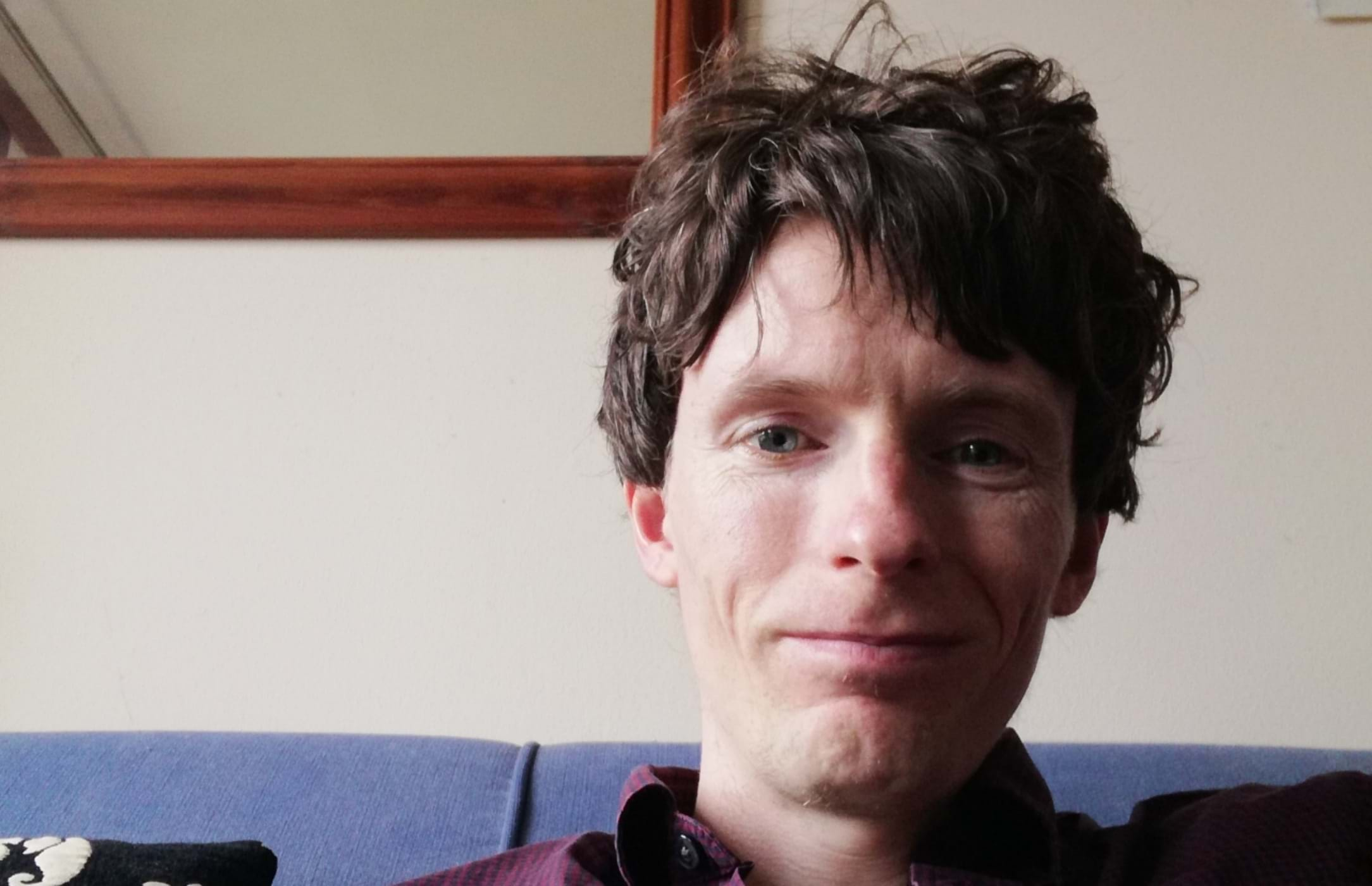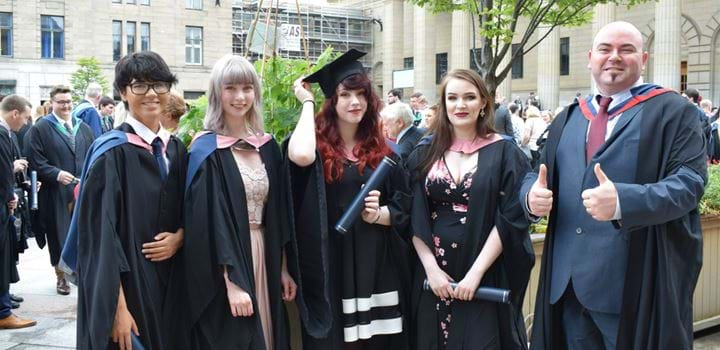Pause carousel
Play carousel

"I had strong expectations of securing a graduate job quite early on, however those expectations were completely shattered! With dozens of graduates competing for every job, it’s an extremely tough game.
As soon as I began my final year at university, I had a strong vision of what I wanted to do following graduation. I pretty much had the next five years of my life mapped out at this point, which in hindsight maybe wasn’t the best approach. I got rejected following the second stage of the application process with SEPA, which was a heavy blow. I’m quite a resilient person, so I got back on the saddle pretty quick and started applying for more jobs. Success on the job front however, would prove to elude me.
I applied for 34 jobs over the following year in a variety of scientific positions, from diagnostic biomedical lab work to fermentation science for beer and whisky production! When COVID kicked off, things changed fundamentally. I quickly applied for a temp job at a pharmacy and got offered it immediately. This would keep me busy during lockdown, but it also made me think long and hard about how I could fulfil my true career potential. It was during this time that I became quite prolific with job applications, and I was also working on a distance – learning masters degree in Environmental Toxicology and Pollution Monitoring."
My advice to the 2020 graduates is to be as flexible as possible when it comes to your career plans. Try not to restrict yourself to one specific employer, or even one specific job type. If your career interests are multifactorial then it stands to reason that your chances of success will be reasonable. However, career success might not happen for months or even years! Try to look at this with some wisdom and perspective, rather than constantly fighting the emotional challenges of rejection. Self - pity is a luxury you cannot afford!
What are your long-term career aspirations?
I would like a position that combines my passion for human biology with environmental issues. I'm interested in the specific impact that environmental contaminants can have on the body; for example, could nitrous air emissions interfere with gene expression, or food grown in contaminated soil lead to cellular damage? Plastics of course are a big concern, particularly with regards to the inhalation of airborne fibres from polyester and acrylic clothing. Currently we don't know what damage (if any) this has on the body, and I find this worrying.
How will your next steps contribute towards your early career?
I've applied for several jobs in a variety of fields. I’ve had a few rejections, some at application stage and one at interview stage. I’m currently waiting to hear back from another interview that I had last week. I’m keen to embark upon a distance learning MSc in Environmental Toxicology & Pollution Monitoring. I don’t particularly want to pursue full – time post graduate study, but I would love to be able to study in tandem with a Monday to Friday job. If I can secure relevant employment, then I would happily use the evenings and weekends to work on the master’s degree.
What approach did you take to researching your career path and industry?
I read New Scientist every few weeks, and there was an article about environmental toxicology that I found quite interesting. That set the ball rolling, and I very quickly discovered the distance learning MSc available at Ulster Uni. During my honours project I began to communicate directly with SEPA in order to obtain useful bacteriological data. This strengthened my desire to work within the environmental sector. My ideas rarely come spontaneously, but as a result of speaking to various people and reading around the subject for a long time.
How are you feeling about everything?
Triumph: I’ve never been particularly confident in my abilities to achieve anything, and for a long time I believed Higher education to be completely beyond my capabilities. The fact that I’m now graduating with a first-class degree in Biomedical Science is a major personal victory.
Excitement: Graduation (for me) does not symbolise the end of a journey, but the start of a new one. I feel as if I’m a position where I can consolidate what I’ve learnt at uni and apply it to various situations. For instance, refining what I’ve learnt so I can best apply it towards a workplace environment, and also, tailoring my academic knowledge towards a lay audience. I love chatting to my pals in the pub about science related stuff, but no one wants to listen to jargon. There’s loads of topical stuff related to biology, and if you can capture the interests of everyone listening then that’s a huge win.
Determination: I’ve came this far with my studies, and I refuse to be defeated by the next challenge of job hunting! I’m determined to secure a relevant job within the next few weeks, even if it’s just a stop gap position. I know it’ll take a while to find my ideal job, but that’s par for the course. If I can find a reasonably good job that enables me to build upon my knowledge from uni, then it’ll be a steppingstone towards something better.
How are you feeling at this stage in the job hunt?
Unfortunately, the stars don’t seem to be aligned for me now. I’ve had a spate of rejections, most of which haven’t even progressed to interview stage. For a while I was spending every available minute searching for jobs, with all my days off typing up applications and fine – tuning them for each position. I was happy with the quality of each application, meaning there was an inevitable feeling of positivity with each submission. This would then be followed by a sense of intense negativity following each rejection. It was like an emotional lever being constantly switched between two opposing feelings. For a healthy mindset this is not sustainable, so I’m currently assessing the situation and considering a new approach.
I’m still confident I’ll get a decent job, but it might take a bit longer than I initially expected. When I was still at uni I had visions of walking into a position immediately after graduating. On personal reflection, past achievements have never come quickly for me. For some people things simply take time, but hard graft and determination usually pays dividends eventually.
To break up the job search, you mentioned you’ve taken on an old hobby. What is this and how is it helping you to stay motivated?
I’ve recently resurrected my hobby of photography by buying a new camera. This has given me a huge creative boost, as well as a new purpose and direction. It came just at the right time; - I had to take my mind off the job situation, otherwise I would have started to go a bit mad. The photography is encouraging me to jump in the car or a train and go for wee journeys to new and interesting places. This is strangely fulfilling, largely because it makes me think about totally different things. It keeps my mind active in a productive way, letting me process thoughts and ideas from start to finish. This seems to keep my mind sharp, which is hugely important to me.
What's your plan for the coming months?
I’m going to make a distinct effort to arrange voluntary work experience or shadowing, with some of the organisations I want to work with. I’ll have to book time off work to do this, so it won’t happen anytime soon. I’m looking at it as a long – time venture; if I can amass some relevant experience within the role I want to be doing, then hopefully if a vacancy comes up then I’ll be in with a chance. Other than that, I’ll continue to keep an eye out for biomed jobs. Finally, I intend to get out with my camera as much as possible and hopefully develop some half – decent technique!
I’m currently studying Environmental Toxicology and Pollution Monitoring at MSc distance learning level. It’s an interesting course and it’s heightened my desire to work for an Environmental Protection Agency. The first part of the course has been focusing on the impact of chemicals on man and ecosystems over the last 60 years. This has included everything from pesticides, leaded petrol and mercury contaminated seafood, to Agent Orange and fluoridated drinking water. The impact that these chemicals have on the human body can be extremely diverse, affecting everything from gene expression to signalling pathways. The connection between my undergrad degree (biomedical science) and this one is strong, but there’s a whole host of content that’s completely new to me.
I’ve applied for several jobs since we last spoke, two of which have resulted in interviews. Still no offers yet, (for positions that I really want).
Since the COVID – 19 pandemic, things have changed fundamentally. Within the last two days my workplace of 5 years has essentially been mothballed, with my job being axed. It’s a camping shop, so not what you would call an essential industry! Even before it closed, I’d been thinking of ways in which I could contribute to the best of my abilities during this pandemic. I’ve been offered a job in a pharmacy, which will hopefully start within the next day or so.
As you can imagine the virus will dictate what happens for the foreseeable future. As far as I’m concerned, I just want to do as much as possible to help people who are affected. I’ll work in the pharmacy for as long as I’m needed, before continuing my quest for environmental work when things eventually get back to normal.
We offer professional support to our graduates for up to three years after graduation. Explore what resources are available to you, and how you can tap into these when you need them.

Our Careers Service offers guidance and support to our graduates for up to three years after graduation.

It may not be the obvious time to start a business, but it’s definitely still possible. Explore what support is available to you.